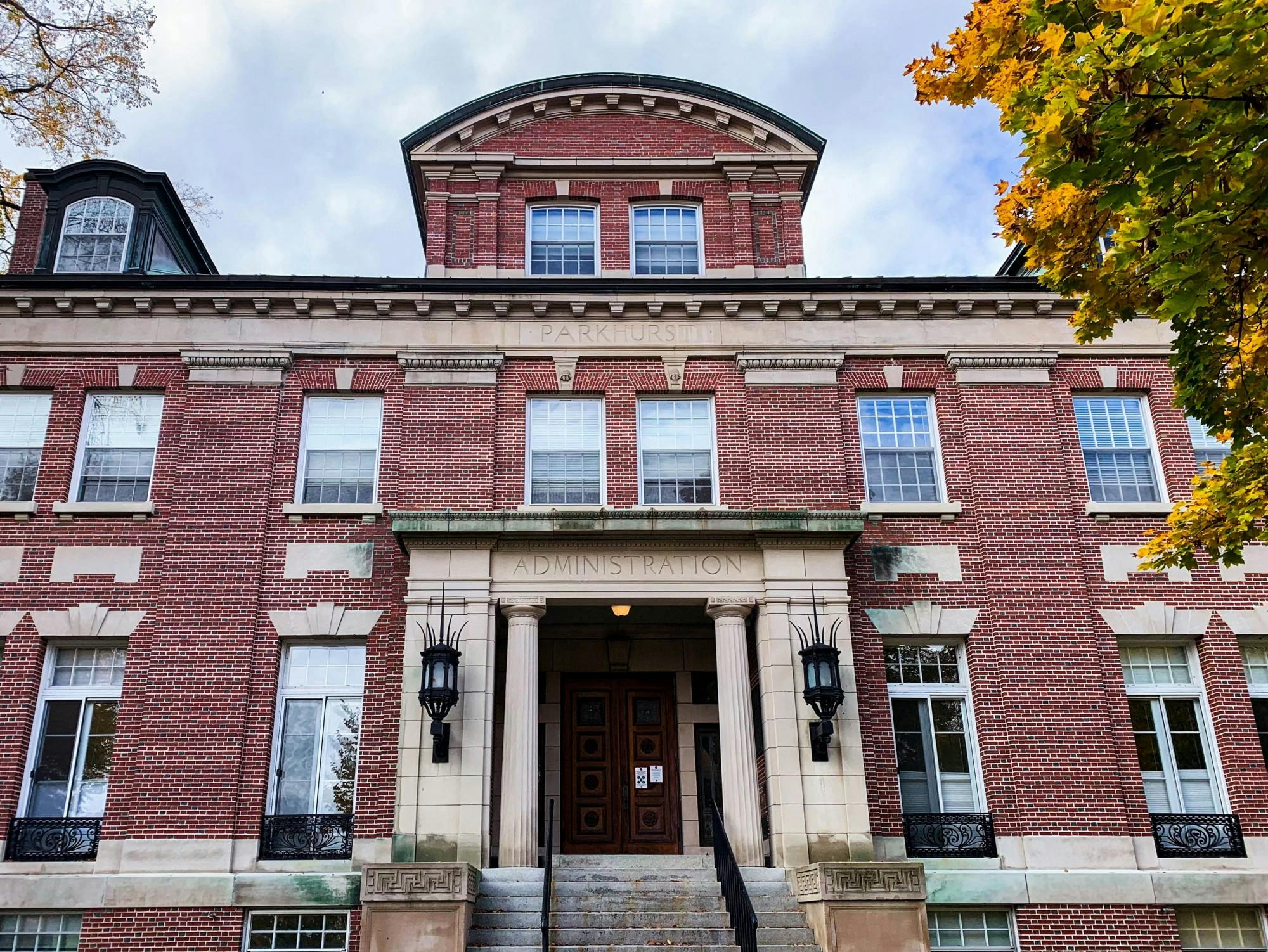On Sept. 19, Dartmouth fired family giving coordinator Marc Jacques, according to a College spokesperson. Six months earlier, Jacques had pleaded guilty in federal court to one count of distribution of child pornography.
According to College spokesperson Kathryn Kennedy, the human resources department did not learn of Jacques’s plea deal until Sept. 18 — nine days after his sentencing in the U.S. District Court for the District of New Hampshire. According to a press release from the U.S. Attorney’s Office for the District of New Hampshire, Jacques was sentenced on Sept. 9 to five years in federal prison and five years of supervised release. He was also ordered to pay $26,500 in restitution. He must surrender to prison “on or before” Dec. 2, according to a U.S. Attorney’s Office spokesperson.
The College learned of Jacques’s crime through the same U.S. Attorney’s Office press release, Kennedy wrote in an email statement to The Dartmouth.
“The former employee was placed on administrative leave within hours [of learning],” she wrote. “His employment at Dartmouth was terminated the following day.”
Jacques did not notify Dartmouth when he pleaded guilty to the charge in March, Kennedy added — a violation of College policy. According to the Employment Reference Check, Background Check, Conduct Records Review and Reference Request Policy, all current College employees “have an ongoing responsibility … to make Dartmouth aware of any felony or misdemeanor convictions or pleas that are acknowledgments of responsibility.” However, the College is not automatically notified in these situations, Kennedy wrote.
“There is no existing mechanism by which Dartmouth, or any employer, is notified if one of their current employees is arrested or charged with an alleged crime, nor when an employee may plead guilty or be convicted,” Kennedy explained.
The spokesperson from the U.S. Attorney’s Office declined to comment on whether Dartmouth was notified about Jacques’s charges or plea deal.
While Jacques pleaded guilty in March 2024, his activities had sparked concern years earlier. According to the U.S. Attorney’s Office press release, Jacques’s IP address was reported to the National Center for Missing and Exploited Children in at least 40 CyberTips — the NCMEC’s tip line for reporting child sexual exploitation — between 2018 and 2022.
After a federal search warrant was executed on Jacques’s residence and person in June 2022, law enforcement agents found more than 200 files of “apparent” child sexual abuse material, messages between Jacques and others related to the sexual exploitation of children and evidence that Jacques had distributed child pornography, according to the press release.
In September 2022, Jacques began working at Dartmouth on a “temporary basis” under contract with an employment agency, Kennedy wrote in a follow-up statement. He was then hired full-time by the College in November 2022 as a family giving coordinator. His background checks yielded “no findings” at that time, she added.
“Dartmouth regularly uses agencies to fill short-term staffing needs,” Kennedy wrote. “[Dartmouth’s] contracts with agencies require that they screen their candidates in a way that aligns with Dartmouth’s standards. In this case, the temp agency representing him had also conducted a background check on the former employee.”
According to the College’s employment policy, finalist candidates for all non-academic staff positions at Dartmouth “are subject to” background checks of “employment, educational, criminal and sex and violent offender records, as well as external conduct checks … from previous employment at an educational institution, if applicable.”
A Dartmouth employee, who requested anonymity to speak candidly, wrote in an email statement to The Dartmouth that many employees were “shocked” and “saddened” by Jacques’s conviction. The employee first found out about Jacques’s firing from a “concerned colleague” outside of work, rather than College leadership, they added.
“Other employees are hearing about it from colleagues or from the news — why hasn’t Dartmouth leadership addressed this?” the anonymous employee wrote.
Kennedy wrote that the College shares employee departure details with “those who have a business need to know” in order to “ensure that personnel matters are handled with confidentiality and integrity.”
“We recognize how frustrating that is, and the anger and pain that can be caused by learning this information after the fact,” she wrote. “We are communicating with those staff members directly and offering support services through the Faculty/Employee Assistance Program.”
According to the U.S. Attorney’s Office press release, Jacques’s case was brought “as part of” Project Safe Childhood — a nationwide initiative to “combat the growing epidemic of child sexual exploitation and abuse” through cooperation among federal, state and local law enforcement, according to the PSC webpage.
Family relations & engagement associate director Kay Reynolds, leadership giving assistant director Jeffrey Rodriguez, family giving and engagement director Carly Sokolik and leadership giving coordinator Mary Beth Westward did not respond to multiple requests for comment by time of publication.
An email to Jacques returned an automated message directing The Dartmouth to Sokolik.




